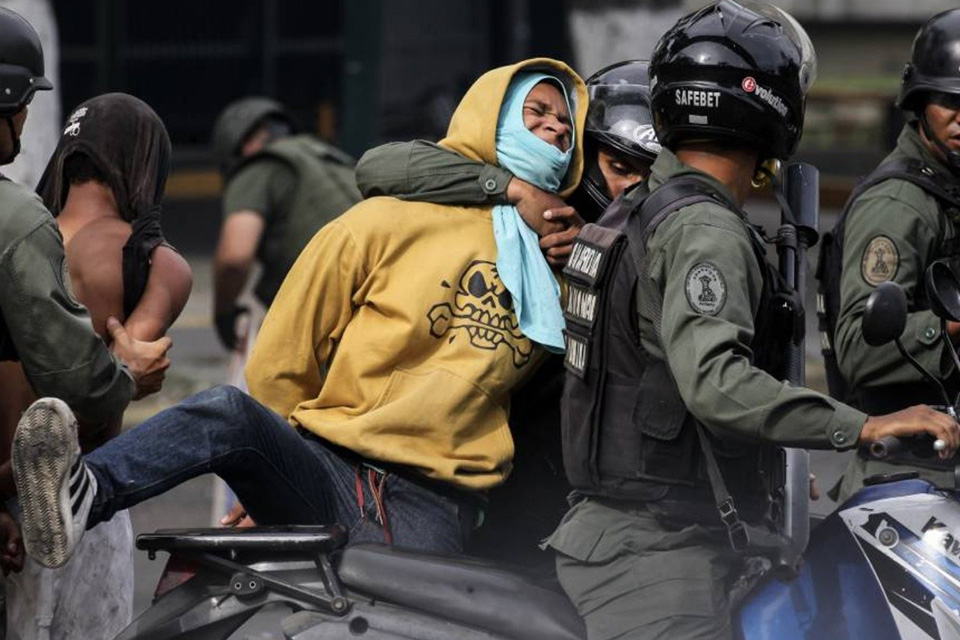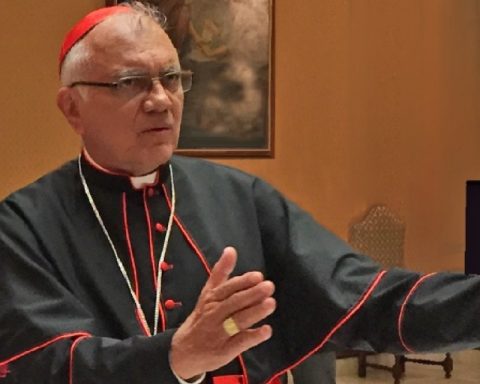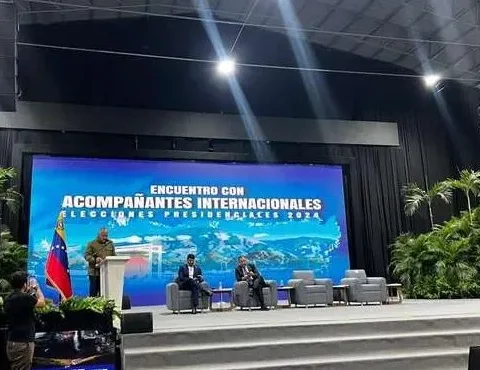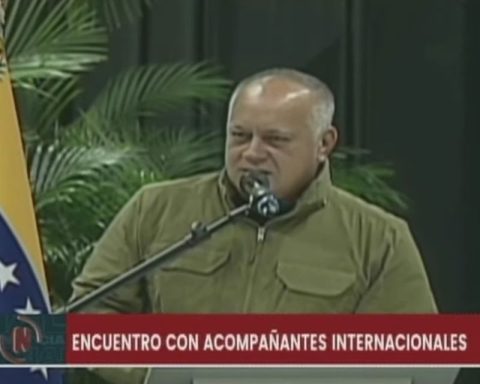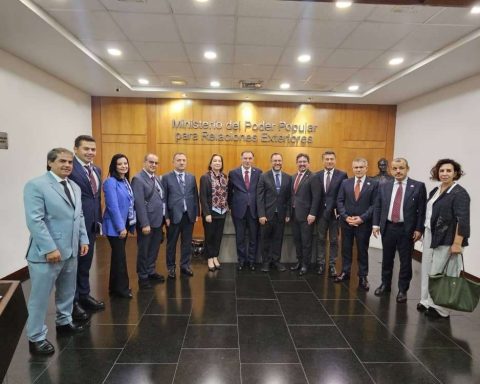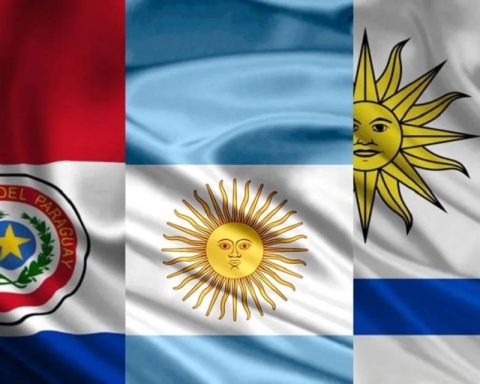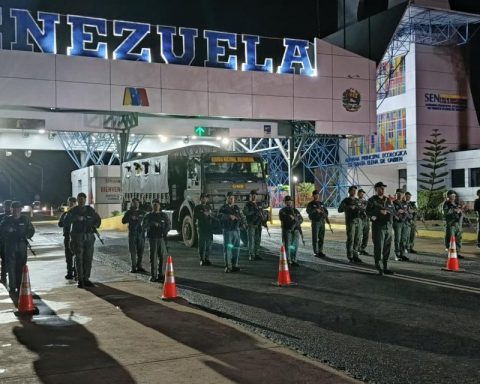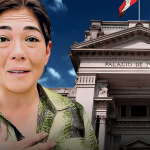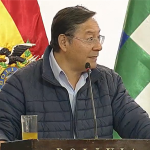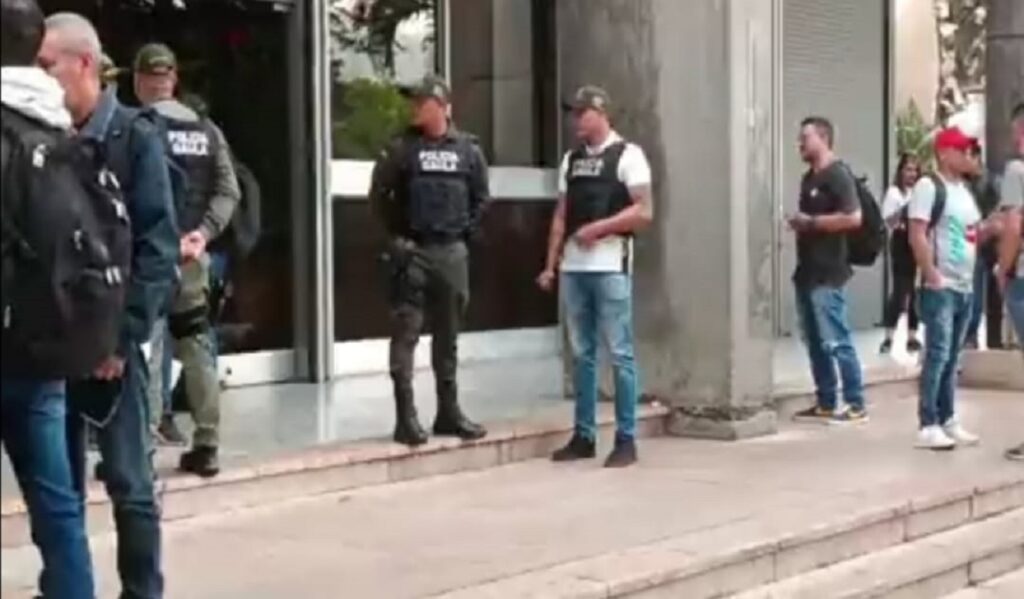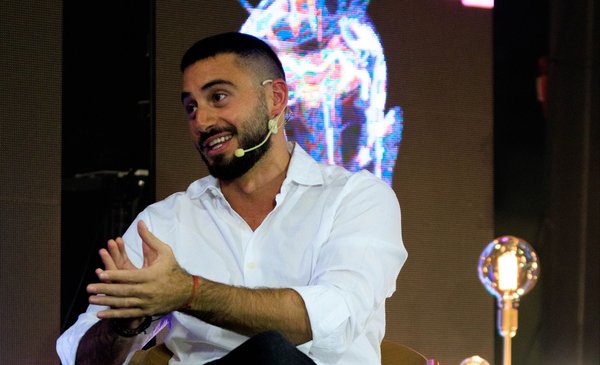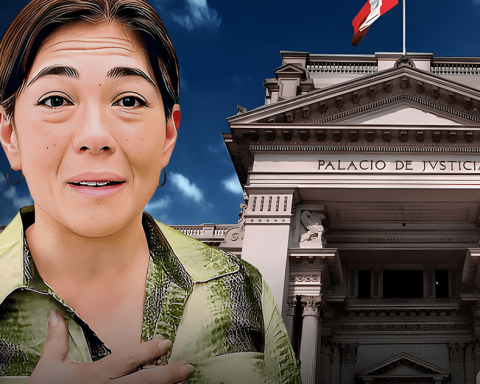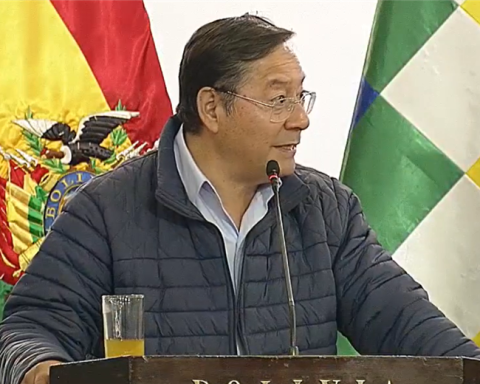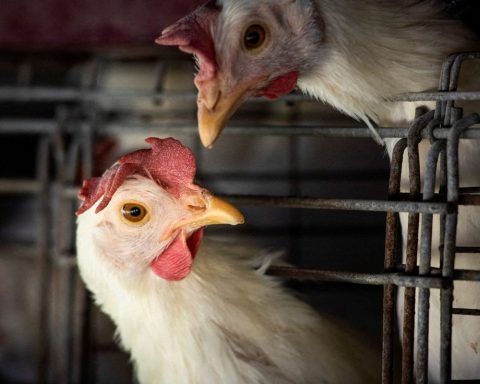ICC prosecutor Karim Khan affirmed, in his latest report, that the Venezuelan State does not have the legal structure to try alleged crimes against humanity, nor does it investigate the chain of command (only limited to perpetrators) and does not prosecute crimes based on persecution, forced disappearances, extrajudicial executions, torture, arbitrary deprivation of liberty, rape or sexual abuse, but the accusations are changed or “diluted”
The Section for the Participation of Victims of the International Criminal Court (ICC) published this Friday, April 20, its report on the requests for 8,900 Venezuelan victimswhere –from the testimonies– at least nine crimes against humanity are identified.
Among the testimonies collected by this instance of the ICC, the crimes of murder, imprisonment or other serious deprivation of physical liberty, torture, other inhumane acts, rape and/or other forms of sexual violence, forced disappearance, forced displacement, politically motivated persecution and other human rights violations.
Due to the lack of justice, the victims overwhelmingly support the resumption of the investigation by the ICC prosecutor, Karim Khan, “even beyond the scope currently foreseen, of all crimes against humanity allegedly committed in the context and temporal scope full description of the Venezuela Situation I”.
In its last writtenpublished on April 1, the ICC Prosecutor’s Office pointed out that the administration of Nicolás Maduro does not offer circumstantial evidence that allows admitting that alleged crimes against humanity are being investigated, tried and actually punished within the territory.
Prosecutor Karim Khan based his statement on the fact that the Venezuelan State does not have the legal structure to judge these alleged crimes against humanity, nor does it investigate the chain of command (only limited to perpetrators) and does not judge crimes based on persecution, forced disappearances, extrajudicial executions, torture, arbitrary deprivation of liberty, rape or sexual abuse, but the accusations are changed or “diluted”.
In the testimonies delivered to the ICC, and about which the Venezuelan State will not be able to obtain detailed information, electric shocks, threats of sexual abuse and rape, hanging, beatings and suffocation are repeated on a recurring basis.
These forms of torture were recounted by victims and their families in the documentary series The republic that torturespublished by SuchWhich in December 2020 and which exposes an exhaustive investigation that reveals patterns of human rights violations in the country, based on cases of political prisoners and common prisoners.
Below are transcribed fragments of the testimonies delivered to the ICC on torture, forced disappearances and sexual violence to which Venezuelans were subjected by members of the Bolivarian National Intelligence Service (Sebin) and the General Directorate of Military Counterintelligence (Dgcim), as well as like other security forces.
- «Enforced disappearance is like torture, like a spine that always pricks you, you never get over the uncertainty of “not knowing”. […] For me it is very important to know what happened to my father. I don’t expect him to still be alive, I lost that hope a long time ago, but I do want them to tell us what happened to him and, if he is dead, to tell us where his remains are and why they killed him. I would like to know the truth about what happened and I would like to have a place to bring her flowers.
- “They stripped him naked and ordered a rottweiler dog to bite his testicles.”
- «Some strangers rang the doorbell of my house, I did not open the door, so they entered my house. They were a group of men from SEBIN, they beat me, they spat on me, they pulled my hair, they told me they would rape me, they hit me with a gun and they threatened to kill my family because I was ‘a bloody fascist of the oligarchy’. Then they tied me up and stole my money and supplies. As a result of these disgusting events, one of them dropped his pants and threatened to rape me, urinated on me and told me to tell him [a nuestra líder] that she was a fascist terrorist, and that if we continued conspiring against the revolution they were going to kill us».
- «[La víctima] was kidnapped [por] a large number of SEBIN officials who tied him hand and foot, tied him to a SEBIN car and dragged him for more than a kilometer through the streets before taking him to the [Redactado] where he was tortured for 24 days. […] The tortures were literally macabre; they pulled out her fingernails and toenails with pliers; she suffocated him by covering his head with plastic bags containing insecticides, severely damaging his lungs; he applied electric shocks to her genitals and private parts; hitting his whole body with wet towels; he made him bathe at all hours in urine and excrement […]».
- “They stripped me naked, hung my hands up and threw buckets of water at me, most of the time it fell on my face. They released me and made me rinse my clothes with just water. On one occasion I was taken to a room where there was only an old metal desk against one wall and an old metal chair in the middle of the room. They cuffed my hands to the chair with two sets of handcuffs, took an electric cattle stick and connected it with a long cord to a wall socket. They placed it several times on my chest, they splashed water on my pants, precisely on my genitals, and they discharged electricity into my testicles, so I couldn’t hold my bladder and urinated with great force from fright. I still have the scars from the current burns on my body. They falsified a court document saying that I was sentenced to death and they took me to a room and made me stand on a plastic bench, hung me by the neck, hit me several times in the stomach while asking me questions that I couldn’t answer. The blows were so strong that one of the legs of the bench broke, so they hung me up and I lost consciousness, I still have the scars on my neck. They took me to an area with other prisoners and told the detainees that I was a rapist, then they took me, beat me and abused me, forcing me to perform oral sex. […]»
- «Another particular way in which the uniformed officers used torture and cruel, inhuman and degrading treatment against me was of a vicarious nature, that is, they mistreated my family to make me suffer. My wife […] I was constantly sexually abused under the threat that if I didn’t tolerate it they wouldn’t let her see me […]. Thus, many times they forced her to undress, they opened the inner face of her thighs, they touched her indecently (sexual violence), and on one occasion they even forced her to remove her menstrual pad to “verify that she had no hidden object,” which that it was tremendously humiliating and offensive to her […]. There was one time when it was even worse because they forced our children to watch their mother and grandmother being stripped naked and they wanted to strip my children”.
- “The victim tried to escape but could not, they grabbed her […] They sprayed a black plastic garbage bag on her with insecticide and covered her head with it trying to suffocate her […]. She was brutally beaten by these men, to the point that she fell to the ground, and when two workers tried to intervene to help her, they were killed on the spot, with rifles, to prevent them from helping. [a la víctima]. […] She continued to be beaten by these men, who also burned her hand, dragged her out of the house, took her to one of the stables where she was savagely raped by men, who continued to brutally beat her; they thought they had beaten her to death, so they threw her away. […] The victim had to undergo surgery due to severe genital tears caused by the rapes, part of her jaw and teeth were knocked out by the brutal blow, and she had hip fractures and spinal problems.
- «[La víctima]who was a minor at the time of the events, was arrested by the DGCIM […] for his alleged connection to terrorist acts […]. [Fue detenido] in a juvenile detention center, in isolation and without receiving visitors. [Sufrió] physical and mental damage due to being incommunicado [y] after his release he fled to [Redactado] […] where he lived on the street and without identity documents”.
Post Views: 144
